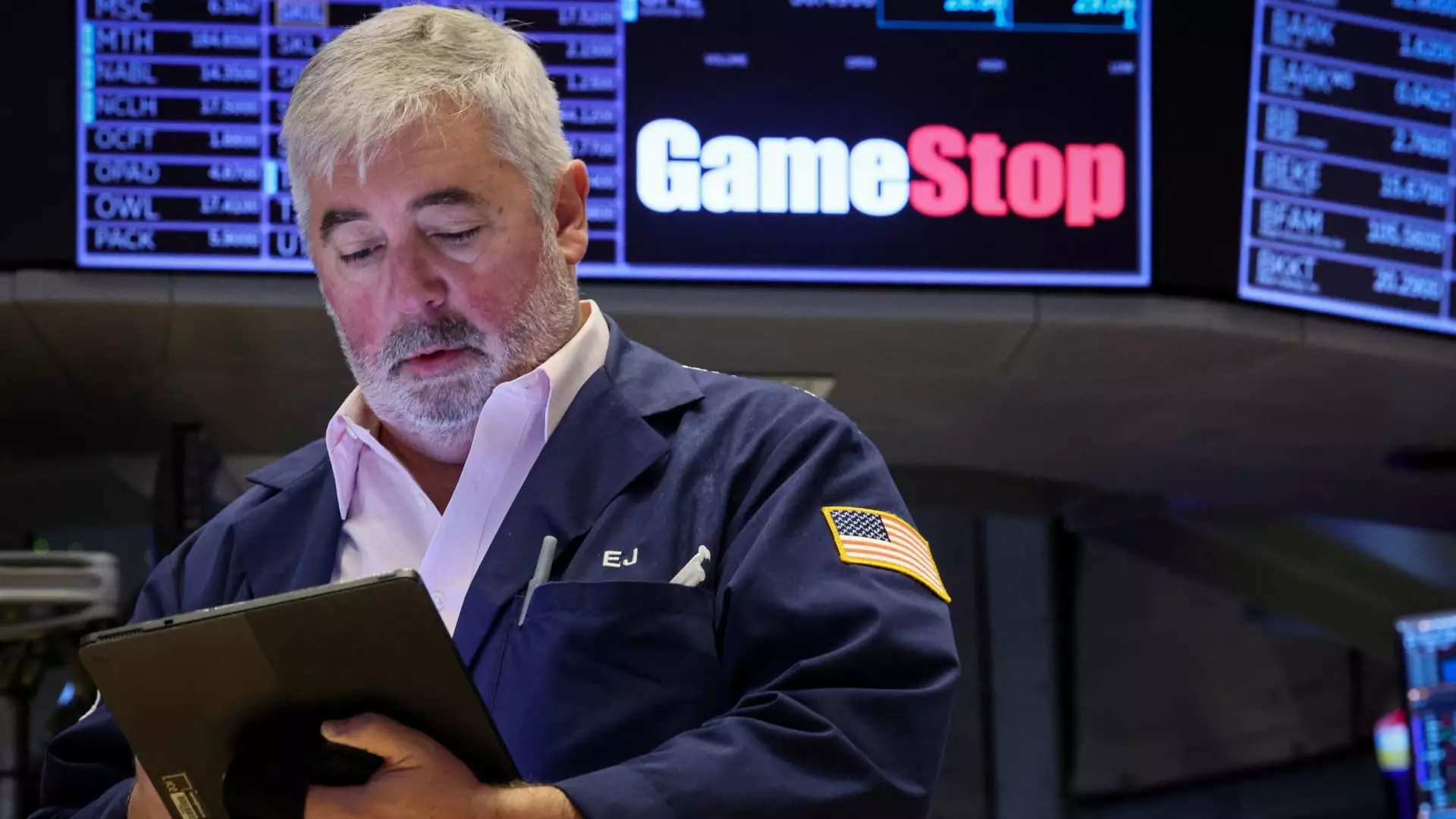GameStop has long been the epitome of a meme stock, capturing the fantasies of retail investors and becoming a cultural phenomenon. However, the company’s latest move—to raise debt for a bitcoin venture—has ignited doubts about its long-term sustainability. After an exhilarating day that saw shares rise nearly 12%, they plummeted over 15% the following day, signaling a volatile tug-of-war between speculative excitement and cold, hard market realities. This checkered stock history begs the question: is GameStop simply chasing trends, or are they laying the groundwork for a promising pivot?
Debt for Bitcoin: A Dubious Strategy
GameStop has proposed to raise $1.3 billion through the issuance of convertible senior notes due in 2030, with a significant portion earmarked for purchasing bitcoin. While many companies have entered the cryptocurrency space with varying degrees of success, it’s essential to scrutinize GameStop’s approach critically. Following in the footsteps of MicroStrategy may seem appealing, but it’s fraught with peril, given GameStop’s already inflated market valuation of $12.7 billion—more than double its expected cash balance post-convertible issuance.
Analyst Michael Pachter’s skepticism underscores a critical point: investing corporate assets into bitcoin isn’t the magic bullet GameStop seems to believe it is. Unlike MicroStrategy, which has leveraged its assets in a disciplined manner, GameStop appears unmoored from the intrinsic value of its operations. With Pachter pointing out that the stock is trading at more than twice its cash holdings, this exercise doesn’t just seem ill-timed; it feels reckless, akin to gambling with someone else’s money.
Trusting the Meme Magic
What’s particularly troubling is the implicit faith GameStop is asking investors to place in its status as a meme stock. The belief that the meme phenomenon will sustain itself over the next five years is a precarious stance, especially when the allure of speculative stocks tends to wane. Pachter’s predictions about a decline in the share price before the issuance of these notes further amplify concerns about the sustainability of GameStop’s valuation.
Meme stocks thrive on a distinct mixture of community support and speculative activity. However, proposing corporate strategies that hinge solely on this phenomenon could be likened to building a façade on sand. When one factors in GameStop’s heavyweight valuation against its operational realities, the potential for a rude awakening looms large.
A Wake-Up Call for Investors
The recent developments surrounding GameStop should serve as a clarion call for investors. It raises critical issues about company governance, financial prudence, and the pressures of staying relevant in an evolving marketplace. If GameStop fails to establish a coherent strategy that integrates its core operations with emerging technologies and trends—like cryptocurrencies—in a sustainable model, it risks becoming a cautionary tale rather than a success story.
In this landscape where technology and finance continuously intertwine, a knee-jerk reaction to chase the latest high could lead to disillusionment. While everyone loves a good story propelled by underdogs and meme culture, the reality of solid financial management must not be overlooked. GameStop’s adventure into the world of bitcoin may be one for the history books, but whether it will be celebrated or lamented is yet to be seen.

